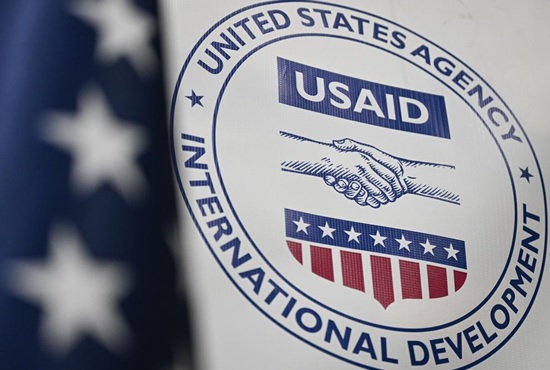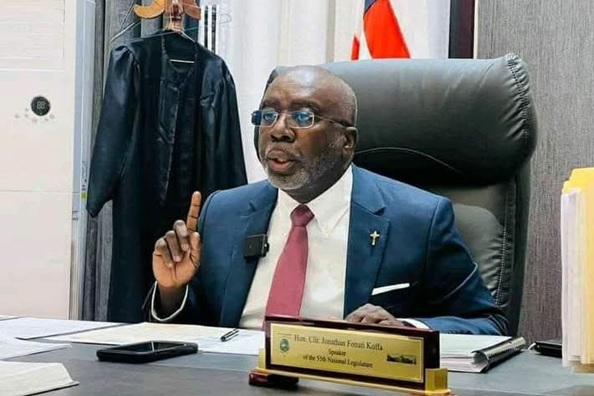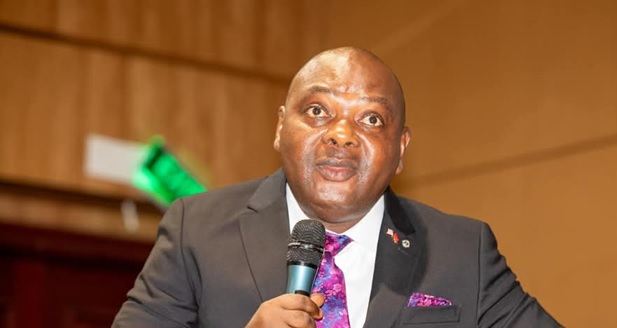MONROVIA – A major financial crisis looms over Liberia as U.S. President Donald Trump moves to freeze all foreign aid, halting the operations of the United States Agency for International Development (USAID) for three months. The decision leaves over 232 ongoing development projects in limbo, putting at risk more than US$150 million in funding that was allocated for critical sectors such as health, education, agriculture, and governance.
The implications of this freeze are staggering. For decades, USAID has been the backbone of development efforts across Liberia, particularly in rural communities where government support remains inadequate. Now, with Trump’s decision to put a temporary halt on U.S. foreign assistance, the country faces an uncertain economic outlook, forcing President Joseph Boakai’s administration to confront its heavy dependence on aid.
According to Liberian activist Martin K.N. Kollie, the government’s reliance on foreign assistance has left it vulnerable to external decisions that could severely disrupt its operations. In a recent article, Kollie outlined the dire consequences of the aid suspension, warning that without immediate alternatives, Liberia could experience severe financial strain, widespread job losses, and increased economic instability.
Liberia’s national budget for the fiscal year 2025 stands at US$851 million, but a staggering 87.5% of it is allocated for recurrent expenditures—salaries, benefits, allowances, vehicles, and retreats—leaving only 12.5% for actual development. This imbalance, according to Kollie, reflects the government’s failure to invest in sustainable growth and self-sufficiency, making Trump’s aid freeze even more devastating.
Over the years, the United States has committed significant financial resources to Liberia’s development. Since 2003, American taxpayers have provided US$2.4 billion in aid, a sum equivalent to 16% of Liberia’s GDP. Despite this, the country remains one of the poorest in the world, with an unemployment rate exceeding 90%. The latest freeze raises a fundamental question: Where has all this money gone?
In May 2020, a US$640 million aid package was approved for Liberia, intended to fund development projects over five years. So far, US$489.9 million of this package has been disbursed, supporting critical initiatives across multiple sectors. Last year, the Boakai administration signed a US$114 million USAID-Government of Liberia agreement, further integrating U.S. aid into national development plans. But with Trump’s freeze, these funds are now trapped, and project implementation has come to a standstill.
The situation has real economic consequences. The suspension of USAID projects means thousands of Liberians employed through these initiatives are suddenly out of work. One employee from the USAID-funded Liberia Food Security Activity (LFSA) project confirmed that his job had already been suspended. Before the freeze, he was paying US$950 in income tax to the government. Now, he joins the ranks of unemployed citizens, further reducing the country’s tax base at a time when the government desperately needs revenue.
Beyond job losses, the broader economic impact is equally severe. The Liberian economy is heavily reliant on U.S. dollars, and a freeze on U.S. aid means a significant drop in foreign currency inflow. With no fresh USD coming in, the demand for foreign exchange is set to rise sharply, leading to depreciation of the Liberian dollar, inflation, and an increase in the cost of imports. Businesses that rely on USD transactions will struggle to sustain operations, and consumers will bear the brunt of price hikes on essential goods.
Trump’s decision also puts Liberia’s eligibility for a second Millennium Challenge Corporation (MCC) compact at risk. In 2024, Liberia was selected to develop a second MCC compact, which could have provided between US$350 million and US$500 million in additional funding. But if Trump extends the aid suspension beyond three months or cancels it altogether, Liberia stands to lose access to this crucial financial support.
As the crisis unfolds, critics argue that President Boakai must take decisive action to steer the country away from its chronic dependence on foreign aid. Kollie suggests that Liberia must adopt an aggressive approach toward economic self-sufficiency by curbing wasteful government spending and investing in revenue-generating sectors such as agriculture, tourism, and local manufacturing.
The Liberia Revenue Authority (LRA) collected US$700 million in domestic revenue in 2024, yet much of it was allocated to salaries, luxury vehicles, private jets, and other non-essential expenses for government officials. This pattern of spending, Kollie argues, reflects a fundamental governance failure, where public officials prioritize personal enrichment over national development.
Trump’s decision, while shocking to many, aligns with his “America First” policy, which seeks to cut U.S. support for nations that remain overly reliant on foreign aid without demonstrating accountability. His move sends a direct message to Boakai’s administration that it must take responsibility for its own development rather than continuously relying on external assistance.
For ordinary Liberians, the reality is harsh. The aid freeze means delays in healthcare programs, reduced support for education, and disruptions in food security initiatives. Communities that depend on USAID-backed projects will struggle to access essential services, worsening an already dire economic situation.
With the possibility of an extended aid suspension, Liberia’s government faces a crucial test. Will President Boakai respond with meaningful reforms to reduce dependency and prioritize domestic revenue mobilization? Or will Liberia continue its long history of mismanaging foreign aid, waiting for the next external bailout?







